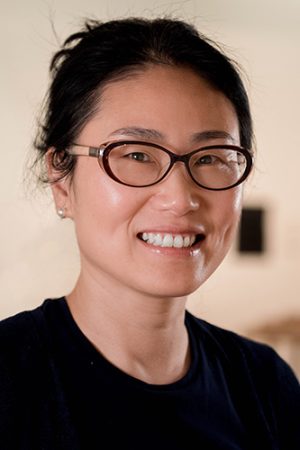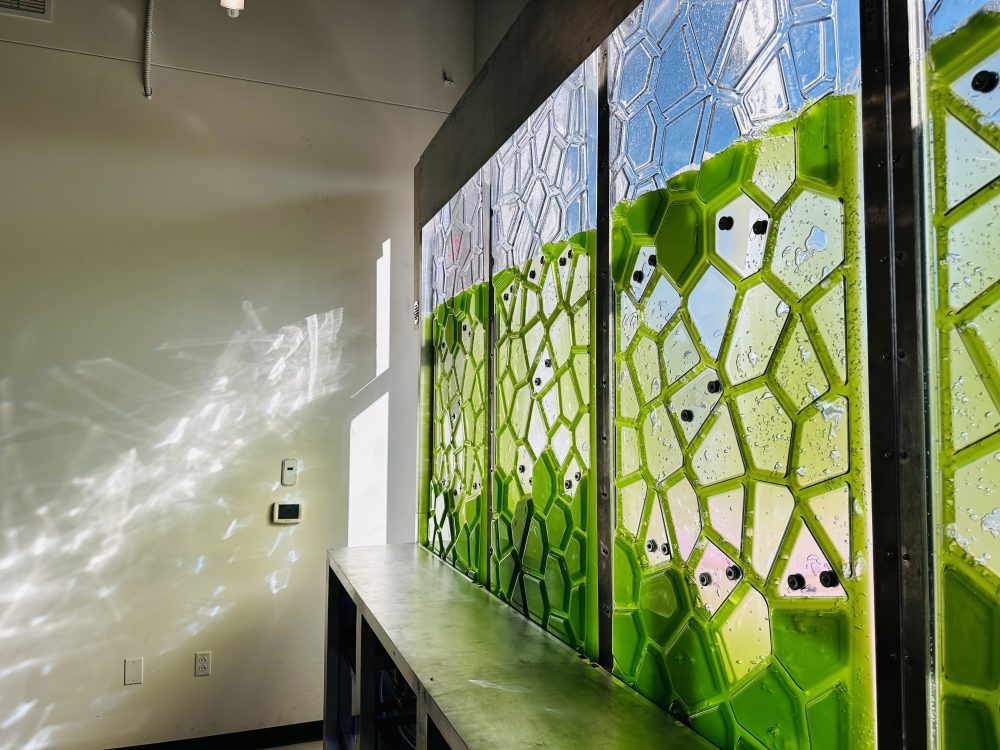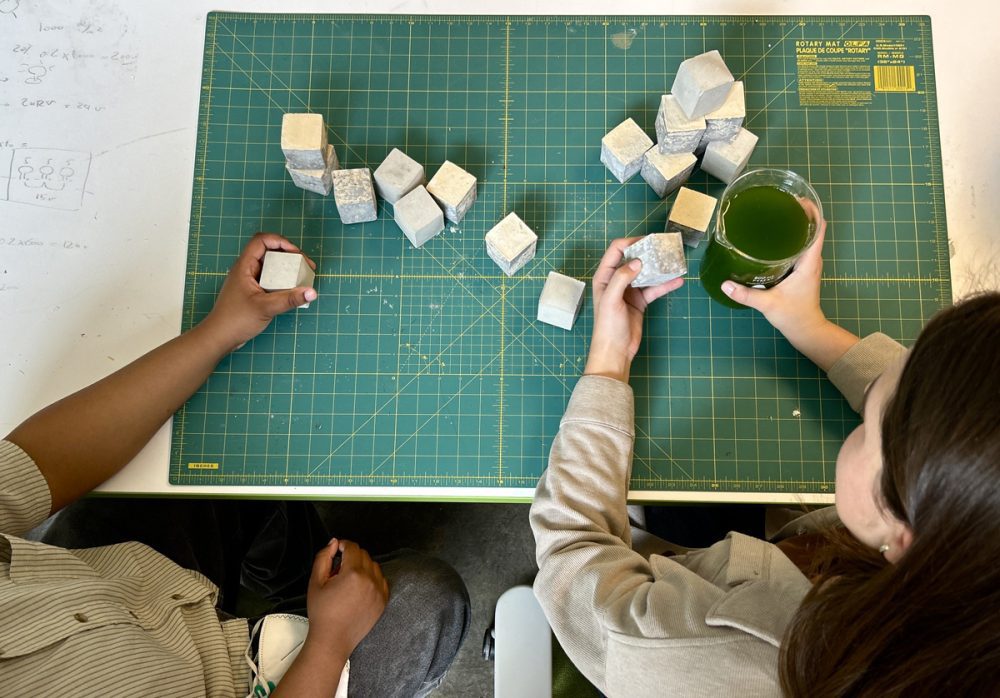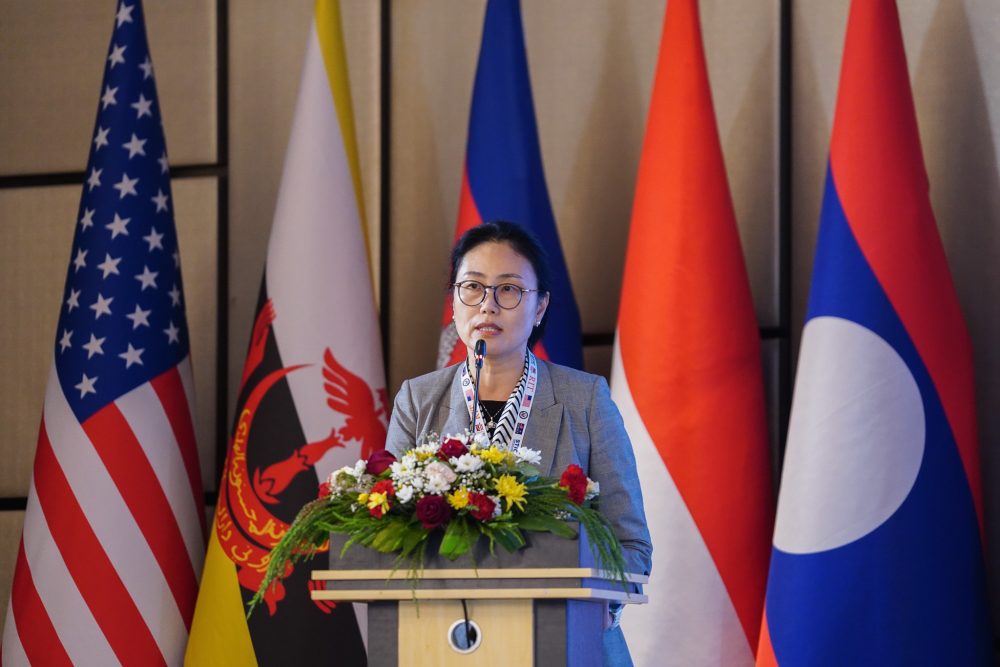Kyoung Hee Kim

Kyoung Hee Kim
Kyoung Hee Kim, Ph.D, AIA, NCARB, NOMA, is a Professor in the School of Architecture at UNC Charlotte, teaching architecture design studios and sustainable technology integration. She is the Director of the Integrated Design Research Lab (IDRL), an interdisciplinary research platform for integrating architecture design and innovative building technologies. Her expertise lies in net zero design and regenerative building technology as a way to achieve a sustainable built environment. Dr. Kim has served as a principal investigator (PI) for over $2 million in research-funded projects sponsored by the National Science Foundation, Department of State, American Institute of Architects, Environmental Protection Agency, and various institutional research grants. Through her leadership, she has conducted interdisciplinary research that addresses critical issues such as nature-based decarbonization, renewable power production, and occupant health and well-being.
Her book, entitled “Microalgae Building Enclosures: Design and Engineering Principles” (Routledge, 2022), explores the symbiotic relations between humans, ecosystems, and built environments to achieve net-zero carbon architecture. Her upcoming book entitled “Design and Engineering of Tall Building Enclosures in Hot Climates” (Springer NY) promotes bioclimatic design and sustainable technology integration in hot climate applications. Dr. Kim has published numerous peer-reviewed publications in journals and conference proceedings.
As a faculty member on the UNC Charlotte Faculty Patent Committee and the Executive Sustainability Committee appointed by the Chancellor, she has recommended promoting patentability and sustainable facilities on campus. Additionally, she has served as a review panelist for the National Science Foundation and as a grant reviewer for the Department of Energy. Dr. Kim has offered invited lectures, exhibitions, and workshops in the United States, Korea, Hong Kong, Vietnam, Thailand, Indonesia, Laos, and China. Research on nature-based solutions and circularity as well as education for green buildings and smart cities are available on the US-ASEAN Green Building Hub. As a registered architect in the state of North Carolina, she is the founder of EcoClosure, a university spin-off and design principal at HKDnA PLLC. Before starting her own practice, Dr. Kim was a senior associate at FrontInc (2007 to 2017) and was engaged in the design and engineering of a wide range of residential, commercial, cultural, and institutional building enclosures with certifications such as LEED, GBI, and Passivhaus.
Dr. Kim holds a Bachelor of Architectural Engineering and a Master of Architectural Engineering from CBNU, Korea, and a Master of Architecture, a Master of Science, and a Ph.D. in Architecture from the University of Michigan, Ann Arbor.
EXPLORE HER RECENT WORK

Crownshyness Microalgae Windows | Dr. Kim and her team installed the Crownshyness algae windows at the Innovation Barn. In addition to real-world performance validation, the project aims to increase public awareness about the potential of nature-based design in mitigating environmental impacts, resource depletion, carbon sequestration, and biofuel production.

Algae Concrete | Algae blooms are uncontrolled growths in aquatic environments caused by over-enrichment of nutrients from human activities. Portland cement production is a significant contributor to global CO2 emissions. Dr. Kim and her team developed algae concrete by utilizing excessive algae as a sustainable, regenerative building material, offering an alternative to traditional concrete. The materials have been tested according to ASTM standards at Dr. Cavalline’s lab, ensuring they meet essential benchmarks for strength and durability.

Resiliency in the built environment | Dr. Kim delivered a talk entitled “Education for Resiliency in the Built Environment“ at the Second Annual Symposium on Accelerating Science, Technology, and Circular Innovation: Smart Cities Innovation, Biotechnology, and Circularity in Venetian, Lao. The presentation explored the integration of nature-based design strategies in creating resilient built environments in the face of extreme climate disasters while promoting the health and well-being of humans, ecosystems, and the planet.